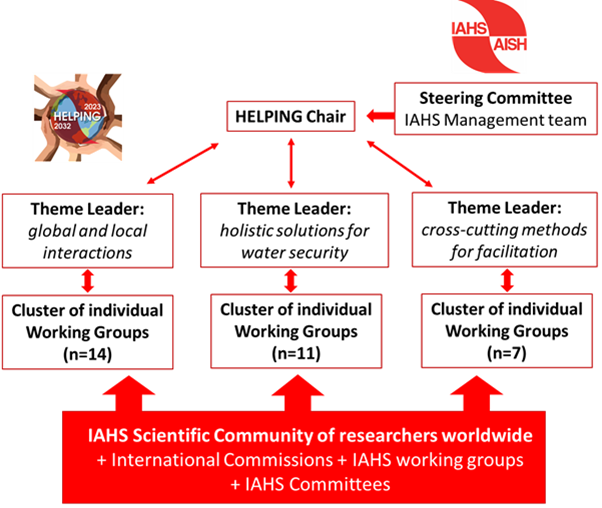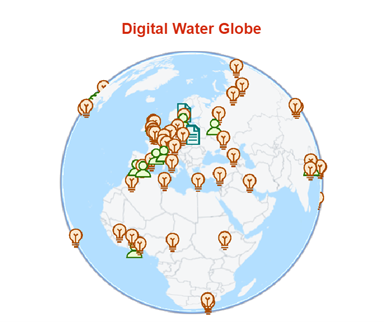A Year of Achievements
I hope this message finds you well as we approach the end of another remarkable year. It's been a journey filled with hard work, dedication, and significant accomplishments. As we prepare to bid farewell to 2023 and embrace the opportunities of the year ahead, let's take a moment to reflect on some of the remarkable successes we've achieved together.
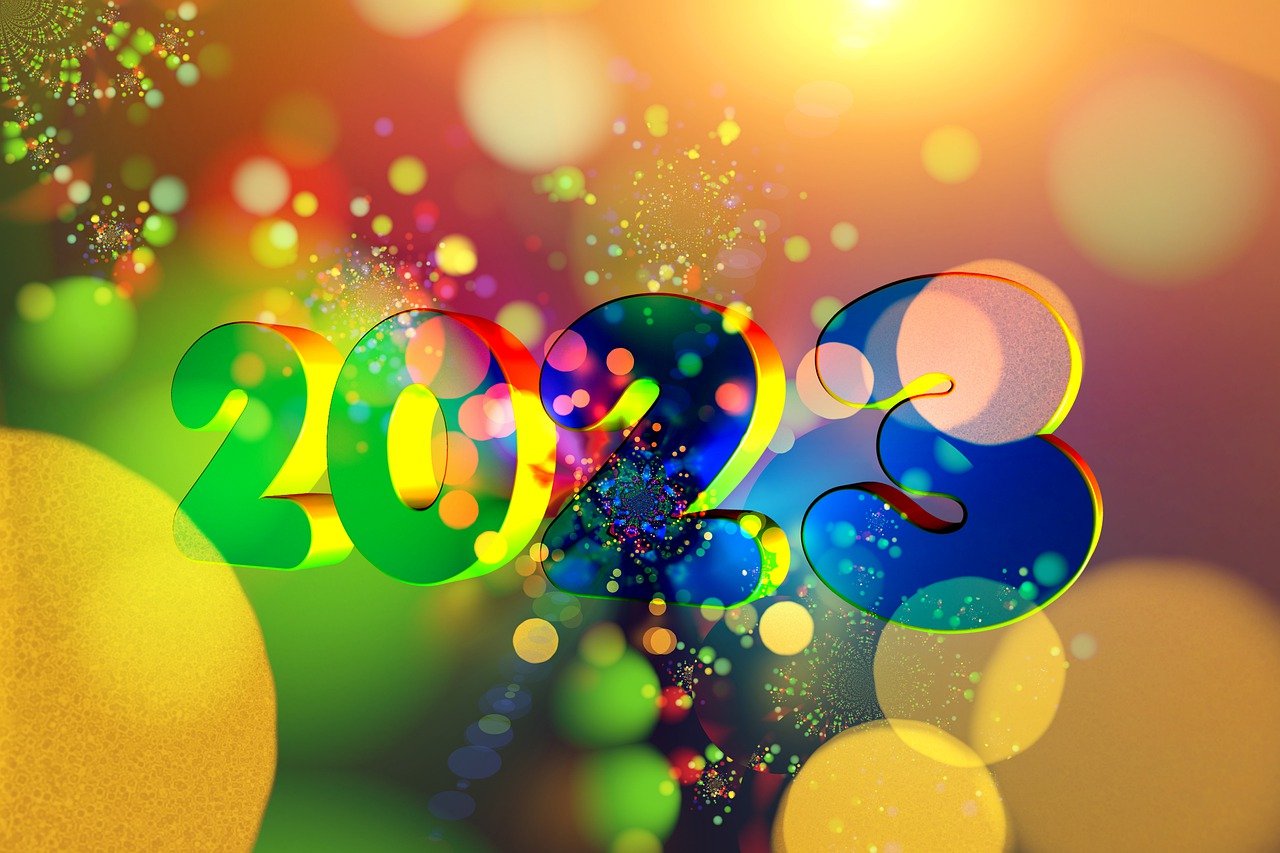
HELPING: We embarked on a new scientific journey with the launch of the HELPING scientific decade, setting the stage for groundbreaking research and innovation.
Digital Water Globe Launch: Our commitment to embracing technological advancements was evident with the launch of the Digital Water Globe (DWG). The DWG is an innovative tool specially designed for, and by, IAHS members where you can give visibility to (un)published results, research sites and find peers for collaborating around the world. This innovative tool is set to revolutionize how we analyse and understand water systems, setting new standards for research and exploration.
New IAHS Website: Our digital presence received a major boost with the introduction of our new IAHS website, providing a user-friendly platform for our members.
UN 2023 Water Conference: IAHS was proudly represented at the UN 2023 Water Conference, thanks to the dedicated efforts of Berit Arheimer, Christophe Cudennec, and Salvatore Grimaldi.
IUGG General Assembly: We had the privilege of participating in the IUGG General Assembly, where we had the opportunity to exchange knowledge and collaborate with esteemed colleagues from around the world. Our members actively participated, contributing their expertise and insights to foster collaboration and innovation in the field.
2023 IAHS Officer Elections: We conducted successful officer elections during the IAHS Administrative Plenary in July, ensuring the leadership of our organization remains in capable hands.
Panta Rhei Symposium: The Panta Rhei Symposium was a resounding success, marking the closure of the Panta Rhei – Change in Hydrology and Society scientific decade. Your contributions made it a memorable event.
International Commission on Human-Water Feedbacks (ICHWF): The establishment of a new International Commission was a significant step forward, capitalizing on the momentum generated during the Panta Rhei Symposium.
IC Workshops: I am thrilled to share that this year has been a resounding success for our International Commissions’ workshops. We set out with a vision, and through our collective hard work, dedication, and passion, we have not only met but exceeded our goals. From innovative product development to fostering collaboration across borders, our workshops have been instrumental in pushing the boundaries of what's possible.
This year has been nothing short of extraordinary for IAHS, and it's all thanks to your unwavering commitment. The IAHS office is closed and will reopen on Tuesday 2nd January 2024. Looking ahead, 2024 promises new challenges and opportunities. I am confident that, with your enthusiasm and expertise, we will achieve even greater heights.
As we bid farewell to 2023 and look forward to the opportunities that await us in the coming year, I want to convey a simple yet profound message to each and every one of you. Your passion, expertise, and collaborative spirit are the driving forces behind our success.
Warm regards
Jean-Marie Kileshye Onema
IAHS Secretary General
Full speed ahead for HELPING Working Groups
The spirit of HELPING collaboration and innovation is in full swing and we are excited to share the milestones from the first year of the decade, where our global community is coming together to make a meaningful impact to understand and handle the water crisis of the Anthropocene.
The journey ahead for the HELPING Working Groups promises excitement, growth, and an opportunity to make a meaningful impact. Currently there are 26 Working Groups attracting from 8 up to 136 people in each (median value is 56 participants). We invite all of you to be part of this incredible adventure. You can join an existing Working Group and contribute to the collective efforts. Together, we will redefine what's achievable and set new standards for success. Stay tuned for updates, announcements, and upcoming events. With joint efforts we can make a difference as a community, and we're excited to have you on board.
Fostering Connections and Synergies
In the spirit of inclusivity and knowledge exchange, two webinars were held on November 2023. The first of which was held on 2nd November, in which 220 people participated. And the second webinar was held on 9th November in which 125 people participated. These sessions brought Working Group leaders together to present their ideas and engage with participants who've signed up. Additionally, breakout discussions allowed Working Groups to dive into their tasks and explore potential collaborations. Some Working Groups decided to merge, and others found new homes within different themes, strengthening our connections and synergy. You are invited to view the presentations from each Working Group here.
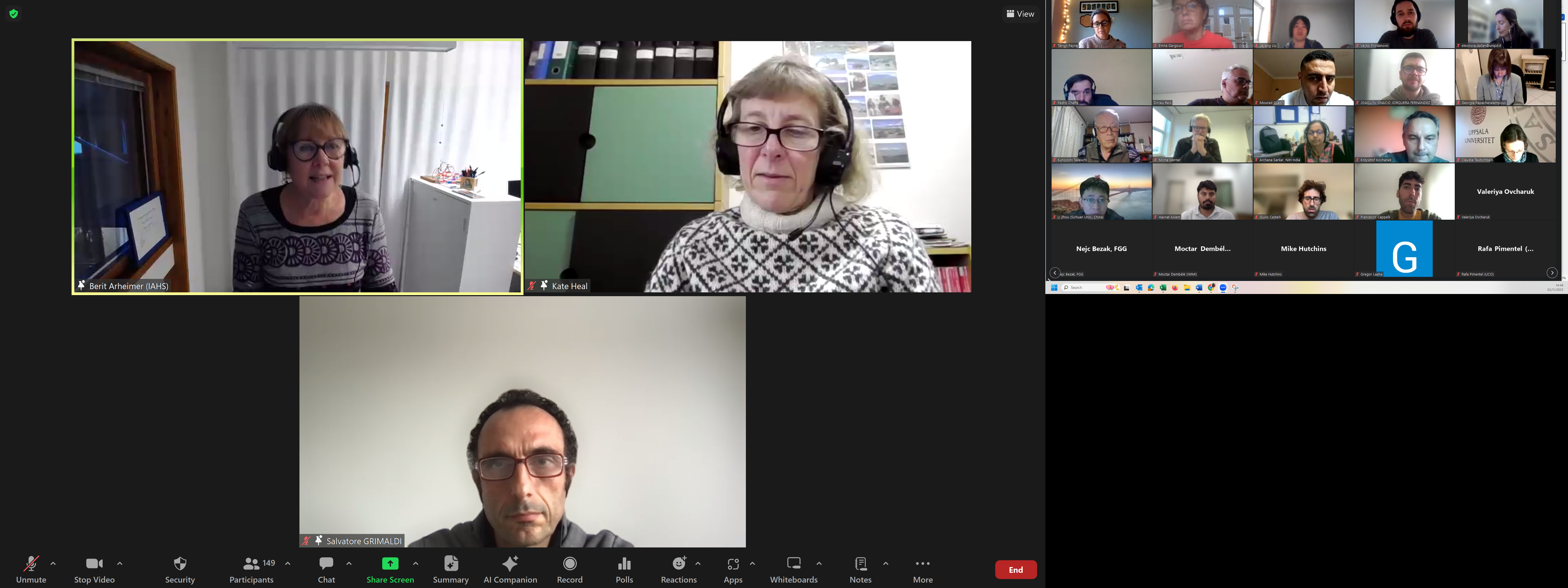
Webinar 2nd November 2023

Webinar 9th November 2023
Unveiling the HELPING Emblem of Unity
In an open call that ignited creativity worldwide, we invited the community to craft an emblem that would symbolise our shared commitment to HELPING. A remarkable total of 14 inspiring logos were submitted for consideration. The moment of decision arrived during the IUGG/IAHS General Assembly in Berlin in July 2023 when attendees raised their hands to cast their votes.
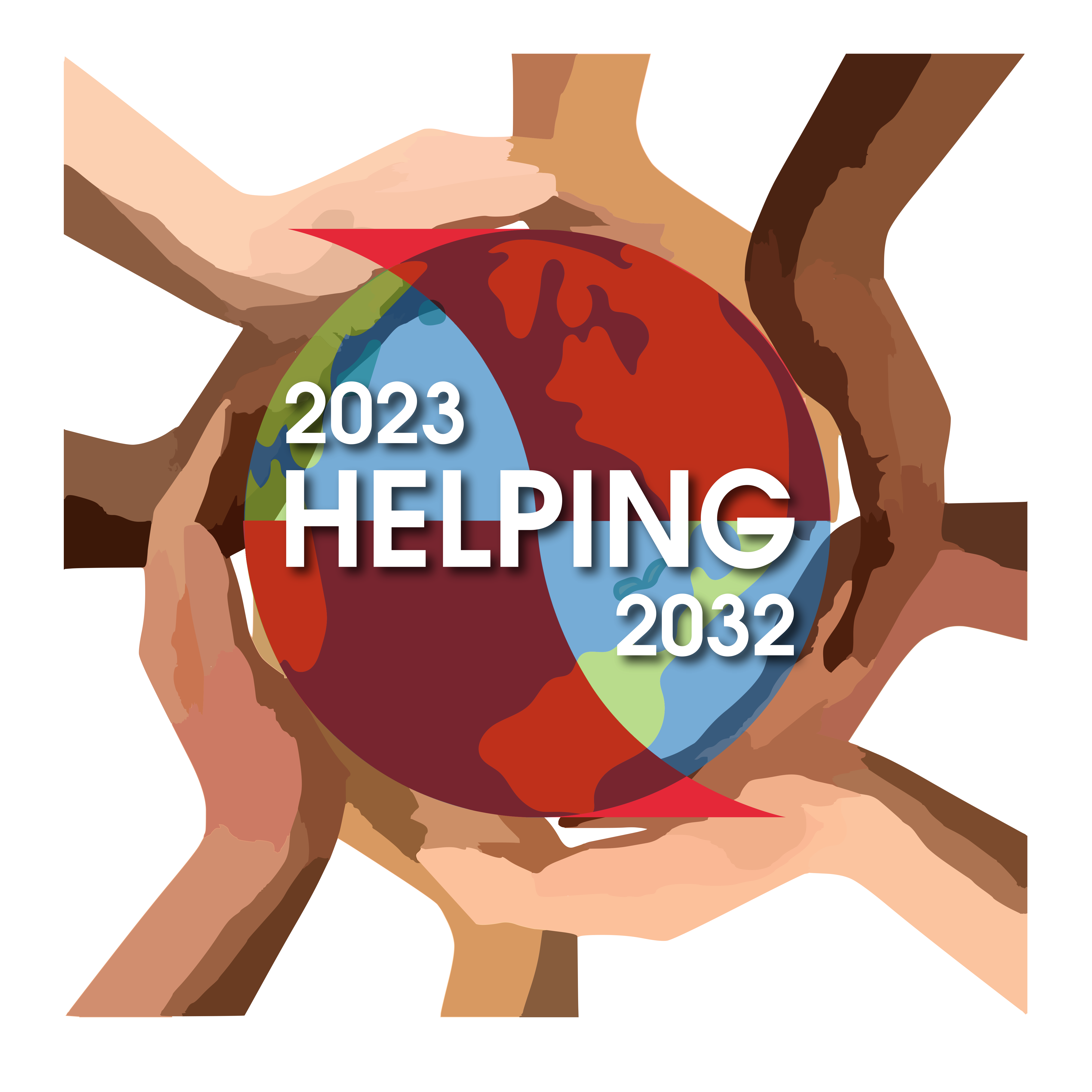
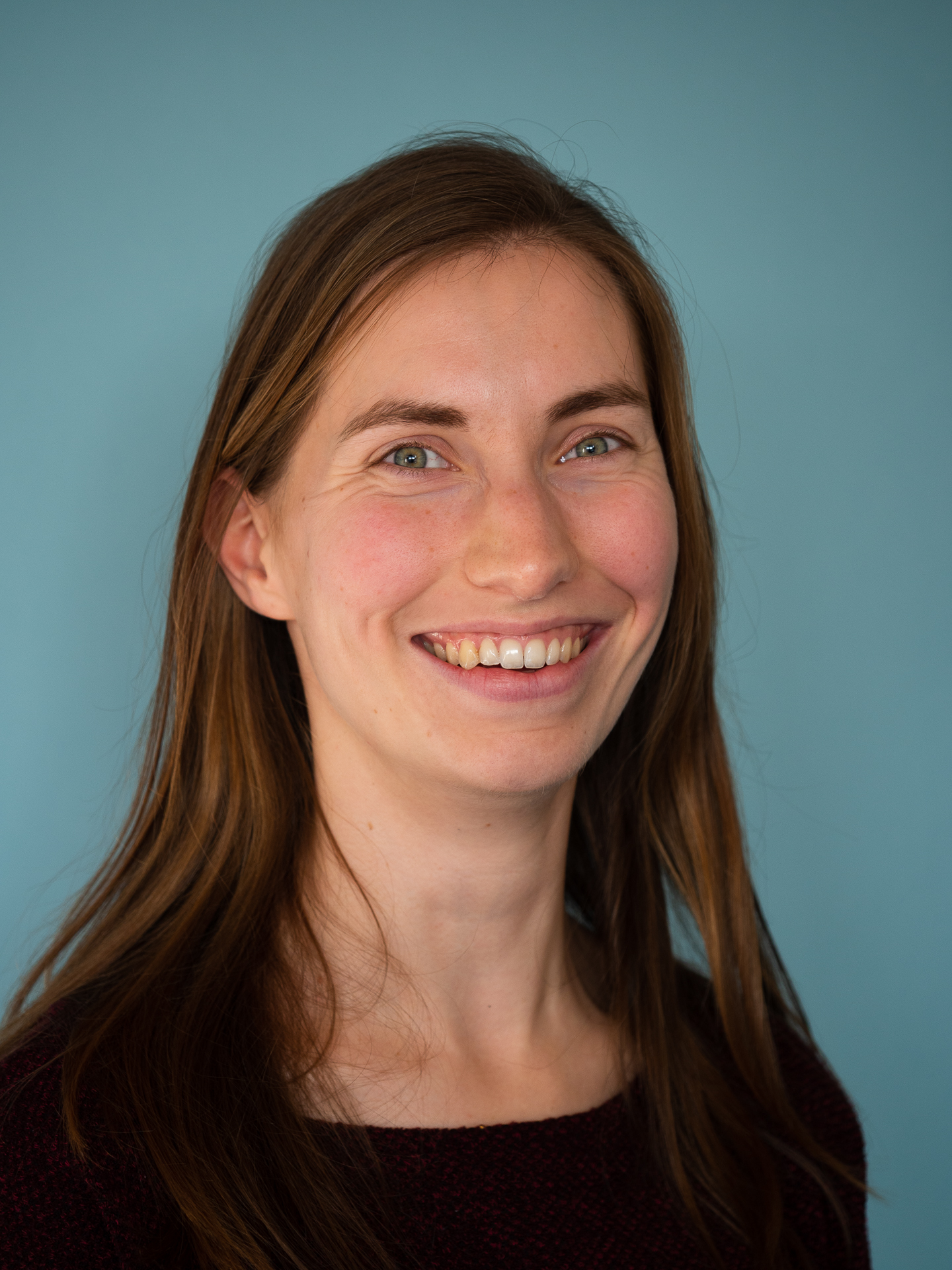
The winning design, masterfully created by Judith Boekee from Delft University of Technology, features a globe cradled by hands from across the planet. It's a powerful representation of our global unity and mutual assistance. The red shape within the emblem is a nod to the IAHS logo, reinforcing our connection.
A Journey Documented: HELPING Community Paper
We're excited to announce that a comprehensive community paper documenting the ideas and initialisation of the HELPING decade in progress. This paper will be submitted to the IAHS community journal Hydrological Sciences Journal (HSJ) early next year. Stay tuned for more updates on this significant milestone here.
Time plan for HELPING
10 December 2022 - 20 January 2023: online forum for suggesting topics
1 - 3 February: workshop in Córdoba, Spain + parallel online meetings (view the Outcomes Document here)
20 February - 1 March: survey on members engagement
15 March: first draft of the Concept Note
16 March - 28 April: online forum open for suggestion Actions for the new decade
27 April: 1 or 2 Splinter meetings at EGU in Vienna, Austria
29 April: 1 day workshop in Vienna, Austria Flyer Outcomes Document
15 May - 30 June: open call for Working Groups and proposal for the new graphical logo of the decade
8 July: suggested Working Groups on the IAHS website with the possibility to sign up
14 July: launch of the new Scientific decade at the IUGG General Assembly in Berlin
18:30 hrs open discussion on Working Groups at IUGG General Assembly in Berlin
19:15 hrs voting for the winner of the graphical logo competition at IUGG General Assembly in Berlin
Opening the call again for new Working Groups
15 July-15 September: open the call for more Working Groups again
15 September: possibility to sign-up to Working Groups until end September
15 September - 15 October: open call for self-nominations to become Theme leader(s) of first 2 years
early November: open online workshop of consolidated Working Groups
15 November: new descriptions of Working Groups and workplans
1st week of December: decision by Bureau of the strategic plan and HELPING setup
15 December: manuscript of Community Paper to HSJ.
New to HELPING?
If you're new to the world of HELPING and eager to get involved, don't hesitate to reach out to us. Our team is not only passionate about our mission but also excited to provide you with all the information you need. A detailed list of HELPING Working Groups is already available, complete with proposal documents and contact information for the Theme Leaders as well as each Working Group leader. If you find a group that aligns with your research interests, reach out to the leader directly. Alternatively, you can email us at [email protected]. Your journey toward scientific collaboration and discovery begins here!
Let's unite, innovate, and make a lasting impact together during the HELPING Decade!
International Commission on Continental Erosion Symposium 2024
We are pleased to announce that the Symposium of the International Commission on Continental Erosion (ICCE) will be hosted at the Catholic University of Eichstätt-Ingolstadt, Germany, on July 24th-26th, 2024. The topic is "Sensitivity of erosion and sediment transport to recent climate change".
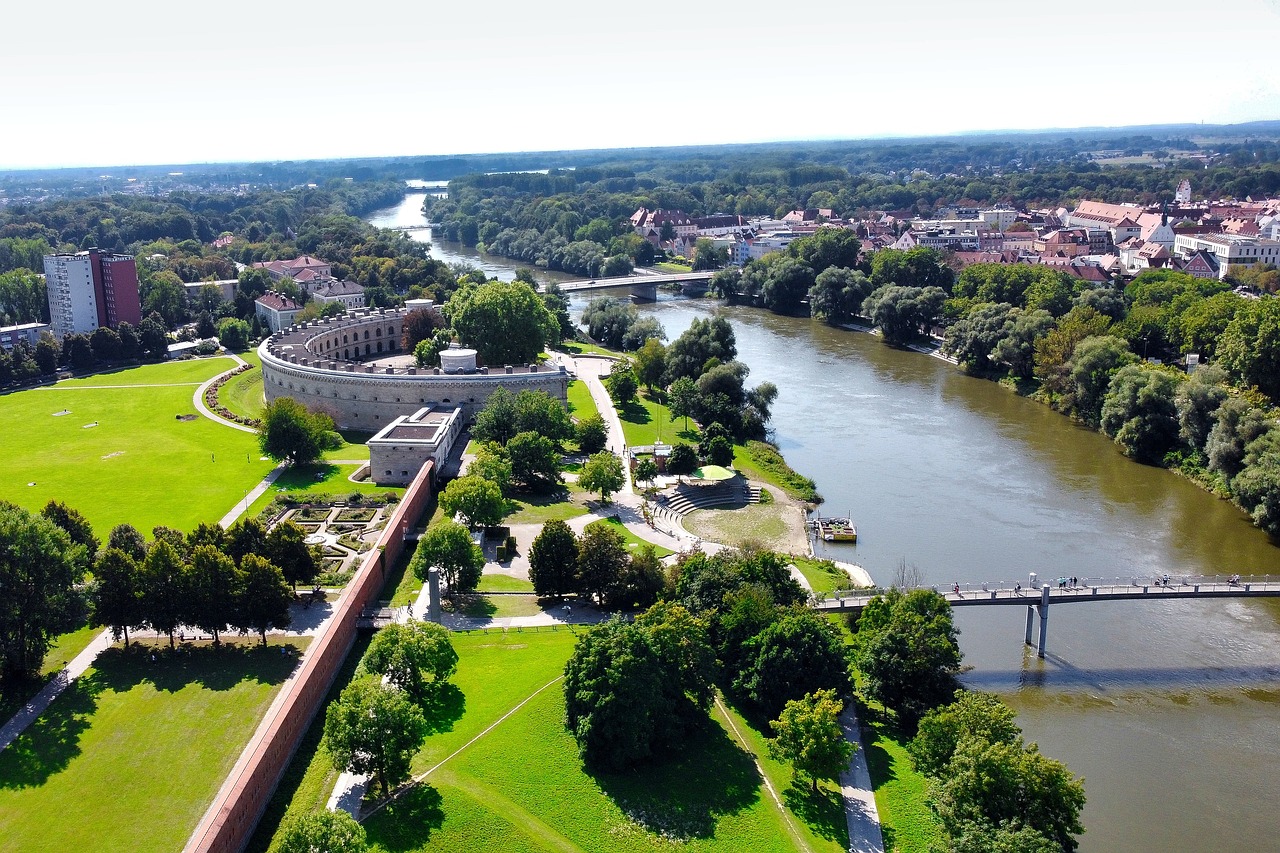
As the anthropogenic alteration of global climate and its specific regional features become more and more evident, the symposium aims to shed light on recent progress and research avenues regarding the sensitivity of erosion and sediment transport to recent climatic and environmental changes. This topic spans multiple compartments of geosystems such as:
- processes on hillslopes and slope stability
- fluvial processes, river planform changes and sediment budgets
- aeolian sediment dynamics
We invite contributions related to different environments of the Earth and hope to stimulate discussion and collaboration. As many of the aforementioned processes affect human life, societies and economy, we are interested in both basic and applied research. Your presentation might also show methodological innovations leading to better measurements and understanding of erosion and sediment transport in the past, present and future.
The venue is located in central Bavaria, between Munich and Nuremberg (airports) and can be reached by national and international train connections. Please visit our conference website https://www.ku.de/icce2024, for full information and register for this international yet familiar event! Registration will stay open until March 3rd, but it is advisable to register and book your accommodation as early as possible, because the meeting will take place during the main summer holiday period in Germany.
Early-career colleagues from disadvantaged countries who are eligible are invited to apply for a Sivapalan Young Scientist Award (SYSTA) travel grant for which the deadline is February 16th 2024.
Looking forward to meeting you!
ICCE Officers
Call for Nominations
Nominations are now being accepted for the IAHS Tison and Falkenmark awards, as well as the International Hydrology Prize. Nominations for the awards should be received by the Secretary General, Jean-Marie Kileshye Onema at [email protected], no later than 31 December 2023.
IAHS Tison Award, established in 1982, aims to promote excellence in research by young hydrologists. The Award will be granted for an outstanding paper published by IAHS in a period of two years previous to the deadline for nominations. More information, including the list of previous awards and the nomination process, is available here.
IAHS Falkenmark Award, established in 2022 and is for best PhD thesis recognises outstanding contributions to hydrological understanding of water scarcity and water supply. More information, including the list of previous awards and the nomination process, is available here.
The International Hydrology Prize, awarded annually by IAHS, with UNESCO and WMO, to two people who have made an outstanding contribution to hydrological science. Two medals are awarded under the International Hydrology Prize: the Dooge Medal and the Volker Medal. Both medals are intended to distinguish outstanding achievements by hydrological scientists but with a different focus. The Dooge medal is aimed at fundamental contributions to the science of hydrology, whereas the Volker medal is aimed at outstanding applications of hydrological science for the benefit of society at large. More information, including the list of previous awards and the nomination process, is available here.
Passing of Malin Falkenmark
It is with great sadness that we have learned of the passing of Professor Malin Falkenmark. She is best known for her long-standing work and expertise on the sustainable use of water resources to meet human and ecosystem needs. Her work is characterized by pioneering integration of both natural- and social-science approaches in global perspectives. She is particularly known for developing the Falkenmark Water Stress Indicator, concepts of Blue and Green water and Comparative hydrology.
She has had a long relationship with IAHS including receiving the IAHS-UNESCO-WMO International Hydrology Prize in 1998 https://iahs.info/About-IAHS/Competition--Events/International-Hydrology-Prize/International-Hydrology-Prize-Winners/MFalkenmark/. In 2022, inspired by her teaching and long contribution to our sector, IAHS launched a new award in her honour aimed at the best PhD thesis from a financially disadvantaged country https://iahs.info/About-IAHS/Competition--Events/Falkenmark-Award/.
The Stockholm Resilience Centre have written an obituary providing much more information https://www.stockholmresilience.org/news--events/general-news/2023-12-06-malin-falkenmark-water-pioneer-and-academic-mother-of-water-research-has-passed.html.
Congratulations to the HELPING Theme Leaders!
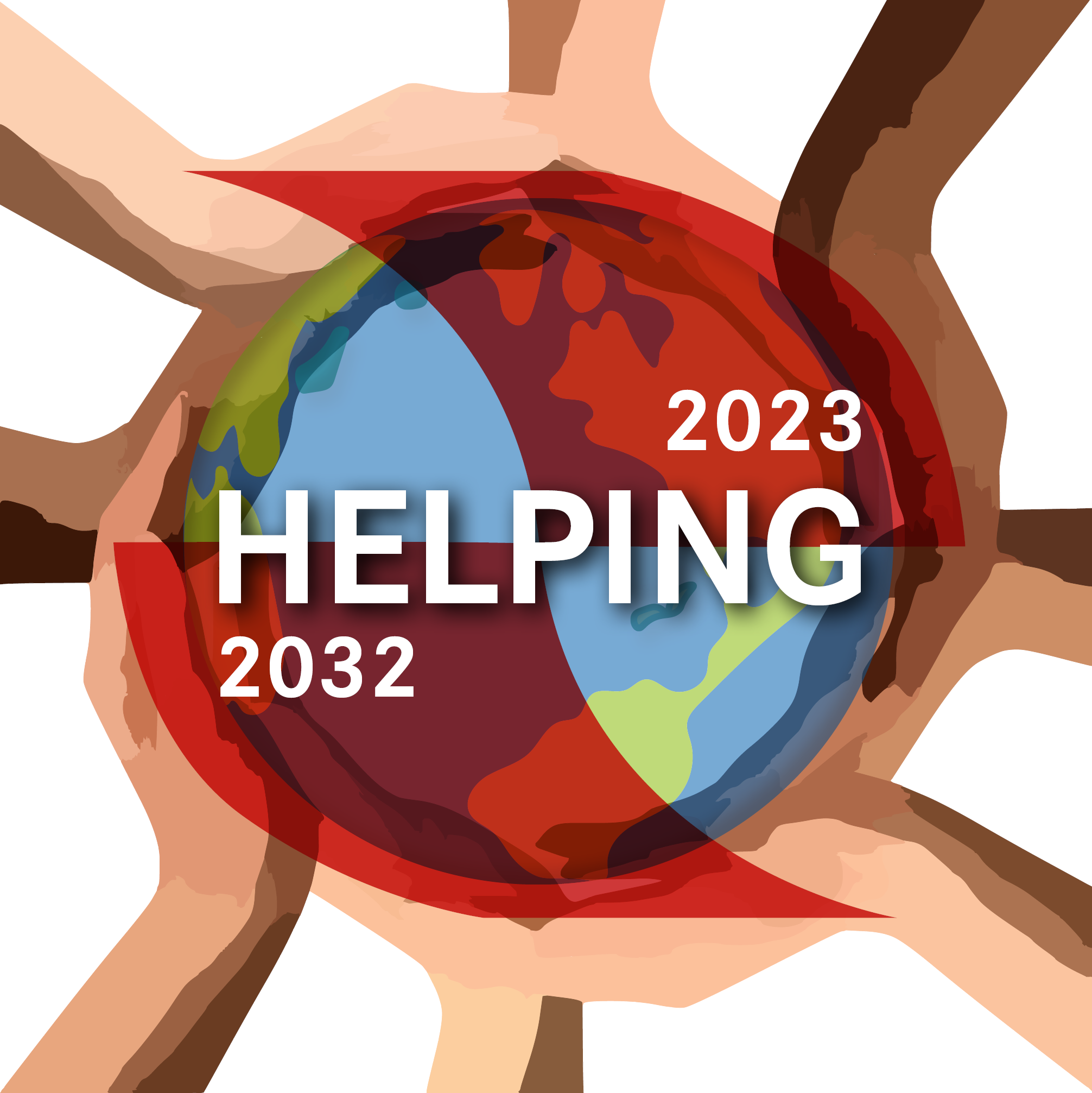
Three Theme Leaders are selected to lead the clusters of Working Groups during the initial period of the Science for Solutions decade HELPING. Currently, HELPING has consolidated into 25 Working Groups with 6-140 participants each (42 on average) to which members can still sign up.
The IAHS management team has now evaluated the candidates who applied as Theme Leaders, who will help organise the new Science for Solutions decade HELPING. We are happy and grateful to announce the following volunteers who will serve the IAHS community in leading this initial phase of the decade.
Theme 1: “HELPING with global to local interactions” (14 Working Groups)
Prof. Justin Sheffield; Head of the School of Geography and Environmental Science at the University of Southampton, UK.
Justin has more than 30 years of experience in research, applications, and leadership across a diversity of hydrological topics, from fundamental understanding of processes, including under climate change, water resources assessment and management, and the science and applications of the water-energy-food nexus. He has carried out this research at global, regional and local scale, including working directly with communities, and has worked on understanding scaling issues, cross-scale interactions and data representation that would be relevant to this theme. He has extensive experience in working with, generating, and disseminating data and models across these scales.
Moreover, he has substantial experience in dealing with capacity development and co-creation with people in financially disadvantaged countries. He has developed networks of researchers and practitioners to provide opportunities for collaboration, employment and learning beyond the lifetime of single projects.
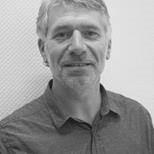
Justin Sheffield - University of Southampton
"In this position, I will leverage my experience to lead the theme over the next 2 years such that it develops into a vibrant and active programme, and is in a good position for the next 2 years under the following theme leader. Moreover, I will apply as flat a management structure as possible, to provide early career researchers experience in leadership", says Prof. Justin Sheffield.
Theme 2: “HELPING with holistic solutions for water security” (8 Working Groups)
Dr Ana Mijic; Director of the Centre for Systems Engineering and Innovation & Reader in Water Systems Integration at Imperial College, London, UK.
Ana is leading and supporting a broad and interdisciplinary research group, working across multiple aspects of water systems integration and systems modelling. She is a lead author for the “Coevolution and Prediction of Coupled Human-Water Systems: A Synthesis of Change in Hydrology and Society” in the IAHS Panta Rhei Synthesis Book that will be published in 2023.
Ana applies systems approaches to water management, and has been working on novel methods and tools for integration and coordination of interventions for both managing the high and low flows and water quality. Ana has been conducting academic research for ten years and has been involved in water management research in the UK, India, South Africa and Malaysia, among others. She has worked on the integration of water and energy systems, water and planning systems as well as Nature-Based Solutions.
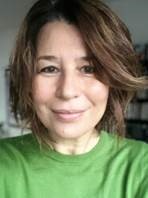
Ana Mijic - Imperial College, London
"As a Theme Leader, I will create a shared perspective based on the topics of individual Working Groups (WG). This will enable the WG leaders to see their role within the theme, but also to find other WG that they would potentially like to collaborate with”, says Dr Ana Mijic, and continues: “I will make sure that there is a process how to communicate findings from the Working Groups, not only by them reporting to the Theme Leader, but also by creating forums where groups can communicate between themselves, particularly if topics of their research are complementary. As such, I will help shaping the narrative and integrating findings from Theme 2 WGs."
Theme 3: “Theme 3 HELPING with cross-cutting goals” (3 Working Groups)
Dr. Adeyemi Olusola; Assistant Professor, York University, Canada.
Adeyemi is a physical geographer by training who has worked across diverse geographical contexts from Nigeria to South Africa, and now in Canada. This unique perspective enables him to comprehend water-related issues through a global lens, bridging the divide between the Global North and South. Adeyemi is experienced in analysing extreme events, using trend analysis, climate model data and remote sensing. Recently he has also engaged in indigenous people’s perception of rivers. His history with IAHS includes participating in UPH and STAHY meetings.
Theme 3 is a bit different to the other two Themes as it is more focused on support than on science and, moreover, this theme is small with only three WGs. However, these WGs are important in boosting the other Themes and contributing with policy aspects, science communication and co-creation approaches for engaging with local people.
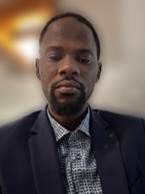
Adeyemi Olusola - York University, Canada
"My unwavering passion for all aspects of water, including its intricate issues, security challenges, and extreme conditions, drives my aspiration to contribute significantly to this crucial cause of HELPING", says Dr. Adeyemi Olusola, and continues: “I bring patience, trustworthiness, and an unwavering commitment to the principles of equity, diversity, and inclusivity. I am steadfast in my belief that regardless of race, gender, colour, or beliefs, fostering an environment of inclusivity is paramount. I am committed to creating spaces within my leadership where vibrant working groups and clusters can thrive, enabling open and productive discussions.”
Read more about the Science for Solutions decade HELPING and sign up to be included in Working Groups HERE!
Obituary Mervyn Peart
It is with great sadness that we report the unexpected passing of Mervyn Peart on September 15th 2023 at his home in Scotland, two weeks short of his 69th birthday. Mervyn will be known to many longer-term ICCE members, since he was a regular participant in ICCE Symposia and Workshops over a period of nearly 30 years extending from the mid-1980s (Albuquerque, USA) through to 2012 (Banff, Canada and Chengdu, China). As such he must rank as one of the most prolific ICCE members in attending its meetings and contributing papers to the associated ‘Red Books’.
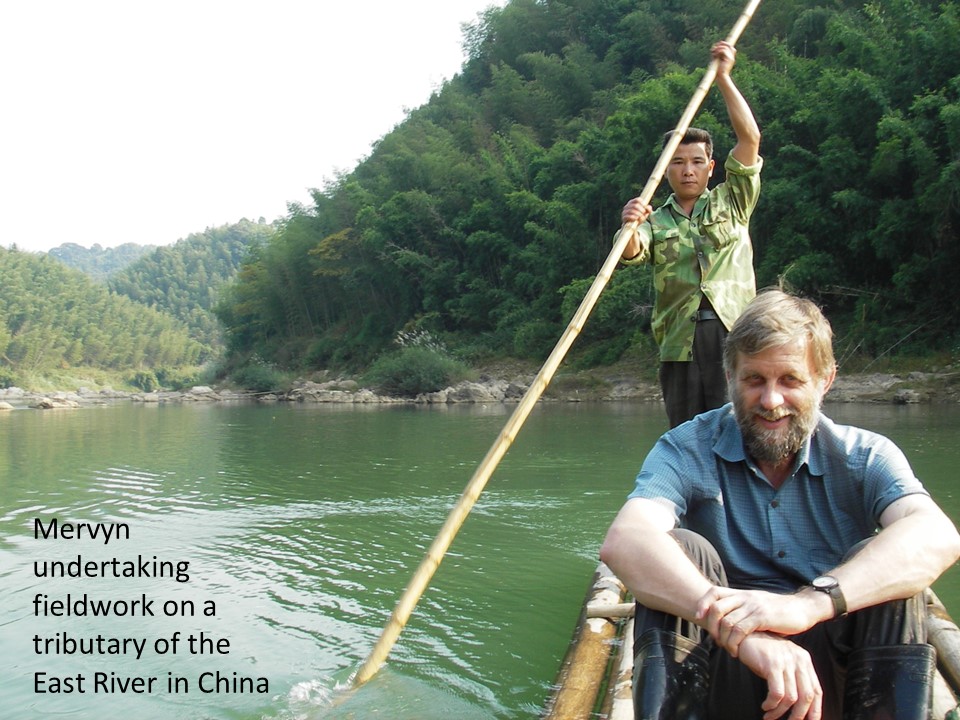
Please see the IAHS website for the full obituary written by Des Walling and Lincoln Fok and link to the memoriam website link.
Phishing or suspicious emails or texts claiming to be from IAHS

Have you received an email or text (SMS) requesting financial assistance or personal help for an IAHS officer? Is someone asking about your IAHS account, email, phone number, password, or payment method? If so, it probably did not come from us.
We will never ask you to enter your personal information in a text or email. This includes:
Credit or debit card numbers
Bank account details
IAHS passwords.
Please, ignore emails and texts that are not specific or expected. If the email or text links to an URL that you don't recognise, do not tap or click it. If you did already, do not enter any information on the website that opened.
Scammers can’t get information from you unless you give it to them. So don’t click any links in the messages or reply to them.
Please forward any suspicious emails to [email protected] so that we can report the phishing attack to the police.
Open Call for Co-Editors for the IAHS Digital Water Globe
Engage and take lead of this new digital innovation connecting IAHS members!
The Digital Water Globe is open for everyone to easily explore and find recent advances in hydrological sciences. The tool gives visibility to both published and unpublished findings, as long as it is evidence-based. It can hold action-oriented key-messages to stakeholders, as well as scientific synthesis on specific processes in the hydrosphere. It is a common ground to share and search scientific information, using site location or keywords.
Background
The digital revolution is accelerating and the past pandemic induced both constraints and innovations. To coincide with the IAHS centenary in 2022, the IAHS Bureau decided to develop a digital water globe (DWG), which aimed to stimulate and facilitate engagement, interactions, and dialogues between IAHS scientists and stakeholders, such as other experts, practitioners, media, and citizens. The development uses state-of-the-art technology in web visualisation to share cutting-edge hydrological research in case studies and datasets from all IAHS members as well as IAHS scientific publications.
The DWG enables
- Global graphical display of case studies, people, publications and data.
- Search and find functions for targeted scientific achievements (based on keywords and filtering).
- Opportunity for visibility and scientific outreach.
- Ability to link research groups and foster scientific collaboration.
- Framework for displaying and linking projects contributing to IAHS Commissions and Initiatives (e.g. UPH, Committees, Working Groups, and Scientific decades - PUB, Panta Rhei, HELPING).
- Evolution and innovation over time to provide an on-going platform and archive.
Leadership
To ensure DWG progress for continuous successful user uptake and impact, we are looking to appoint two DWG Co-Editors who will be supported by a team of Associate Editors and a Steering group. The DWG Co-Editors will be appointed for two years initially and are responsible for:
- Promoting the DWG within IAHS and to other water stakeholders.
- Attracting content to the DWG.
- Guiding the DWG Associate Editors.
- Reporting annually on the DWG to IAHS Bureau and the DWG Steering Group.
To be considered as a potential DWG Co-Editor, please complete this Google Form (now closed) before 17 November 2023. If you cannot access the online Google form, please contact the IAHS office on [email protected]. Each applicant will be contacted directly via email by the IAHS office and the following documents will be requested:
- A covering letter no longer than 1 page, including the names and email addresses of two contactable referees.
- A resume no longer than 2 pages.
Once all applications have been received, the call will be closed and the IAHS management team will evaluate the applications based on documented leadership skills, scientific knowledge in the field, experience in community management, and personal engagement / qualities. The appointments will be announced in December.
Good luck!
HELPING Working Group workshops on 2 & 9 November 2023
The vision and scope of the Science for Solution decade is now crystallising after intense engagement within the IAHS community during this first year. You can follow the progress of the strategic planning (here). The next step is to kick-off the working groups to get into action!
Thank you to everyone who has signed up to the Working Groups for the Science for Solutions HELPING decade. Applications are still being received – go to https://iahs.info/Initiatives/Topic-for-the-Next-IAHS-decade/helping-working-groups/ and sign up to the working group of your choice via the website link (or contact the IAHS secretariat for assistance if you cannot access Google forms).
Currently, we are encouraging the Working Group leaders to be in touch with the people who have already signed up to their Working Group this month, to further iterate on scope and organisation of the collaborative work they foresee.
To share these actions with the full HELPING community, there will be two online meetings Thursday 2 and 9 November (at 13-16 CET). We expect 3-hr meetings where each working group leader (or another appointed person) present their idea for 2 minutes (max 2 ppt slides) followed by comments and questions from the audience. The presentations will be organised in the Themes and follow the structure of already identified goals (see here: https://iahs.info/Initiatives/Topic-for-the-Next-IAHS-decade/helping-working-groups/). Thereafter, time will be given for each Working Group to elaborate a more detailed workplan in parallel discussions (separate break-out in virtual rooms).
A poll link will be shared via the Working Group leaders soon and a Zoom link will be shared via the Working Group leaders later this month. Note the two days are the same so you can attend one or both.
AGENDA for both 2 and 9 November
13.00 – 13.10 CET Introduction to the Science for Solution decade HELPING - content and procedures (Berit Arheimer)
13.10 - 13.40 CET Theme 1: HELPING with global and local interactions (“2 min of madness”-presentations)
13.40 – 13.55 CET Open discussion on Theme 1 focus and goals
13.55 – 14.00 CET Sanity break
14.00 – 14.25 CET Theme 2: HELPING with holistic solutions for water security (“2 min of madness”-presentations)
14.25 – 14.40 CET Open discussion on Theme 2 focus and goals
14.40 – 14.55 CET Theme 3: HELPING with cross-cutting goals (“2 min of madness”-presentations)
14.55 – 15.10 CET Open discussion on Theme 3 focus and goals
15.10 – 15.15 CET Sanity break
15.15 – 15.45 CET Discussion in break-out groups for each WG (split audience into parallel rooms)
15.45 – 16.00 CET Reunion in plenary for feedback and open discussion on way forward.
Note that it is up to each working group to agree on activities, deliverables, and time-plan with participants. Some working groups may have a very specific aim and last for short time – while others may be more general and evolve over the full decade, using a living planning process.
Moreover, we have started to formulate an opinion paper to launch the vision of the Science for Solution decade HELPING in HSJ.
Looking forward to seeing you soon online!
Organisation of the 3rd Decade
